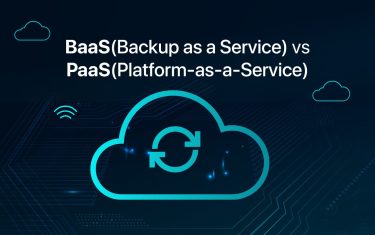July 12, 2023
Can Enterprise Voice Supercharge Your Business Communications?

In today’s fast-paced business landscape, effective communication plays a vital role in driving success and growth. As organizations strive to enhance their communication systems, many are turning to enterprise voice solutions to streamline operations and improve collaboration. This article explores the benefits of enterprise voice and how it can supercharge business communications. We will delve into the advantages it offers, the features that make it indispensable, and the potential challenges and considerations for implementation.
Effective communication lies at the heart of any successful organization. In today’s fast-paced business landscape, where connectivity and collaboration are paramount, having a robust communication system is crucial. This is where enterprise voice communication comes into play. It is a powerful solution that empowers businesses to streamline their communication processes, enhance collaboration, and boost overall productivity.
Enterprise voice communication is built on modern Voice over IP (VoIP) technology, which enables organizations to integrate various communication channels into a unified platform. Gone are the days of relying on separate systems for voice calls, video conferencing, instant messaging, and other communication tools. With enterprise voice, businesses can consolidate all these functionalities into a single, cohesive system.
The Benefits of Deploying an Enterprise Voice System in Your Business
In today’s fast-paced business landscape, effective communication plays a crucial role in driving success and growth. An enterprise voice system, built on modern Voice over IP (VoIP) technology, offers numerous benefits that can significantly enhance communication within an organization. Let’s explore in detail the advantages of deploying an enterprise voice system in your business.
Enhanced Collaboration:
An enterprise voice system facilitates seamless collaboration among team members, departments, and even across different locations. With features like audio and video conferencing, screen sharing, and instant messaging, employees can connect and collaborate in real-time. This fosters efficient teamwork, improves decision-making processes, and accelerates project completion. The ability to communicate face-to-face through video conferences regardless of physical distance creates a more engaging and productive work environment.
Cost Savings:
Implementing an enterprise voice system can lead to substantial cost savings for businesses. Traditional phone systems often incur high costs for long-distance calls and maintenance. With enterprise voice, communication is transmitted over the internet, significantly reducing long-distance charges and eliminating the need for separate phone lines. Additionally, a centralized system reduces hardware and maintenance costs associated with maintaining multiple communication channels. Overall, the cost-effectiveness of an enterprise voice system contributes to improved financial efficiency.
Increased Productivity:
By consolidating various communication channels into a single platform, an enterprise voice system simplifies the communication process. Employees can make and receive calls, send messages, hold meetings, and share files from one interface, eliminating the need to switch between different applications or devices. This streamlined approach saves time and boosts productivity, allowing employees to focus on core tasks without interruptions or inefficiencies.
Improved Flexibility and Mobility:
An enterprise voice system empowers employees with the flexibility to communicate and collaborate from anywhere, at any time, and on any device. Mobile applications and softphone capabilities enable remote workers to stay connected, participate in meetings, and access communication tools seamlessly. This level of flexibility enhances work-life balance, supports remote work initiatives, and enables businesses to adapt to the demands of a modern, mobile workforce.
Scalability:
As businesses grow, their communication needs change. An enterprise voice system offers scalability, allowing organizations to easily add or remove users, expand to new locations, or accommodate changes in call volume. This scalability ensures that the communication infrastructure aligns with business requirements, avoiding the need for major system overhauls or disruptions as the organization expands.
Better Customer Service:
An enterprise voice system plays a crucial role in enhancing customer service. With features like interactive voice response (IVR) systems, call routing, and call queuing, businesses can efficiently handle customer inquiries and route calls to the most appropriate agents. Advanced call management capabilities enable businesses to monitor and analyze call data, helping to optimize customer interactions and improve customer satisfaction.
Businesses require fixed voice solutions

In today’s business environment, technologies like PRI and SIP Trunk enable organizations to establish multiple channels of communication with both internal and external stakeholders. PRI lines support the simultaneous connection of up to 30 lines, while SIP Trunk lines can accommodate up to 1500 connections. Moreover, SIP Trunk lines offer the added advantage of enabling simultaneous data and video calling capabilities. This makes SIP Trunk an excellent choice for large businesses seeking to consolidate voice, data, and video calling under a single service provider. Additionally, hosted services such as Centrex provide organizations with the convenience of a fully hosted telecommunications service on their premises, eliminating the need for upfront capital expenditure.
Exploring the Different Types of Enterprise Voice Solutions Available in the Market
In today’s business landscape, organizations have a plethora of options when it comes to selecting an enterprise voice solution that best suits their communication needs. Understanding the different types of enterprise voice solutions available in the market is essential for making an informed decision. Let’s delve into the details of four prominent types: cloud-based VoIP systems, on-premise VoIP systems, hosted VoIP solutions, and hybrid VoIP solutions.
Cloud-Based VoIP Systems:
Cloud-based Voice over IP (VoIP) systems, also known as hosted VoIP or cloud PBX, have gained significant popularity in recent years. With this solution, the entire communication infrastructure is hosted in the cloud by a third-party provider. Organizations can access the system through an internet connection and utilize features such as voice calling, video conferencing, messaging, and more. Cloud-based VoIP systems offer scalability, as businesses can easily add or remove users without the need for extensive hardware upgrades. They also provide flexibility by allowing employees to communicate from any location, using various devices, enhancing mobility and remote work capabilities. Additionally, cloud-based solutions often come with built-in redundancy and disaster recovery features, ensuring high availability and minimizing downtime.
On-Premise VoIP Systems:
On-premise VoIP systems, also known as self-hosted VoIP, involve deploying and managing the communication infrastructure within the organization’s premises. With this solution, businesses have complete control over their VoIP system and can customize it to meet their specific requirements. On-premise VoIP systems require a dedicated server and the necessary hardware, software, and IT expertise to set up and maintain the system. This solution provides businesses with greater control over their communication infrastructure and data security. It is particularly suitable for organizations that prioritize data privacy and have specific regulatory compliance requirements.
Hosted VoIP Solutions:
Hosted VoIP solutions are similar to cloud-based VoIP systems, but with a slight difference. In a hosted VoIP solution, the communication infrastructure is managed by a third-party provider, similar to cloud-based systems. However, instead of a multi-tenant environment, each organization has its dedicated virtual instance of the system. This setup provides businesses with more control over their system configuration and customization options while still benefiting from the scalability and flexibility of cloud-based solutions. Hosted VoIP solutions are ideal for organizations seeking a balance between control and convenience.
Hybrid VoIP Solutions:
Hybrid VoIP solutions combine elements of both on-premise and cloud-based VoIP systems. This approach allows organizations to leverage the advantages of both solutions, creating a hybrid infrastructure tailored to their specific needs. For example, an organization may choose to keep critical components, such as call control, on-premise for enhanced control and security, while leveraging cloud-based services for scalability, mobility, or specific features. Hybrid VoIP solutions offer a flexible and customizable approach, allowing businesses to optimize their communication infrastructure based on their unique requirements.
Conclusion
Enterprise voice solutions have revolutionized business communications, offering a comprehensive and unified platform that supercharges collaboration and enhances productivity. By streamlining operations, promoting collaboration, enabling mobility, and providing scalability, enterprise voice empowers organizations to communicate effectively in today’s dynamic business environment.
However, successful implementation requires careful planning, considering infrastructure compatibility, bandwidth requirements, and security protocols. With the right strategy and a reliable enterprise voice solution, businesses can leverage advanced communication capabilities to gain a competitive edge, improve customer satisfaction, and drive growth in the digital age.




